Title Page 10 AMAZING CHRISTMAS CAROLS Volume 2 Edited and arranged by Jack Goldstein Publisher Information Published in 2013 by Andrews UK Limited www.andrewsuk.com The right of Jack Goldstein to be identified as the Author of this Work has been asserted by him in accordance with the Copyright, Designs and Patents Act 1998 Copyright 2013 Jack Goldstein All rights reserved. No part of this publication may be reproduced, stored in a retrieval system, or transmitted, in any form or by any means without the prior written permission of the publisher, nor be otherwise circulated in any form of binding or cover other than that in which it is published and without a similar condition being imposed on the subsequent purchaser. Any person who does so may be liable to criminal prosecution and civil claims for damages. The words and music for these carols are in the public domain. The harmonic arrangements of these carols are by Jack Goldstein and may be performed freely by anyone under all circumstances.
Hark! The Herald Angels Sing When Charles Wesley wrote the words to this carol, he rather felt it should be sung in a slow and sombre style.
Hark! The Herald Angels Sing When Charles Wesley wrote the words to this carol, he rather felt it should be sung in a slow and sombre style.
However, his co-worker George Whitefield slightly changed the lyrics and musician William H Cummings adapted music by Felix Mendelssohn to fit the new words. These alterations ensured it was classed as one of the great four Anglican hymns - the most popular hymns of Anglican churches in the 19 th century. A number of fantastic descants have been written to accompany the final verse, and it is well worth including one in any performance of this wonderful classic. 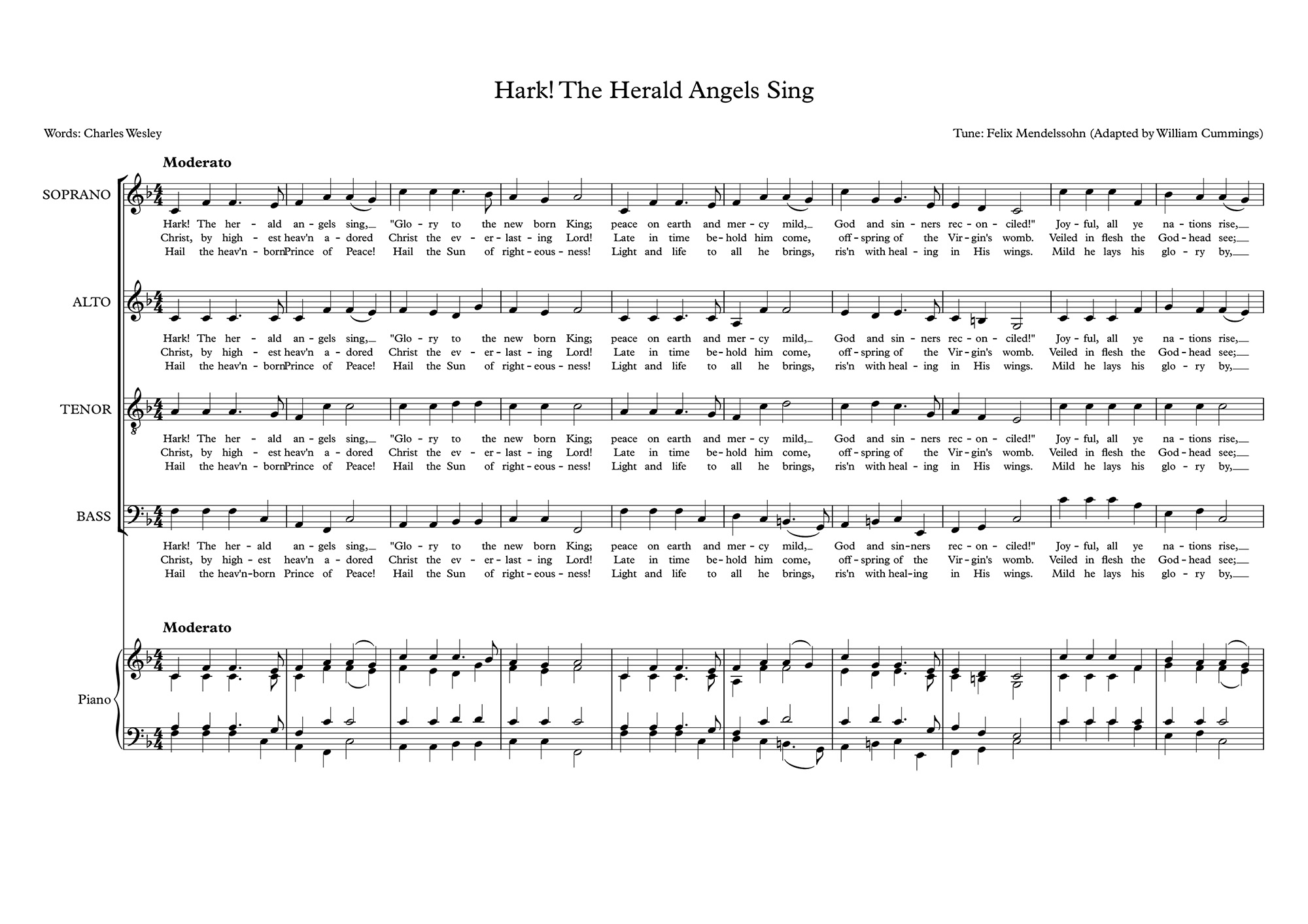
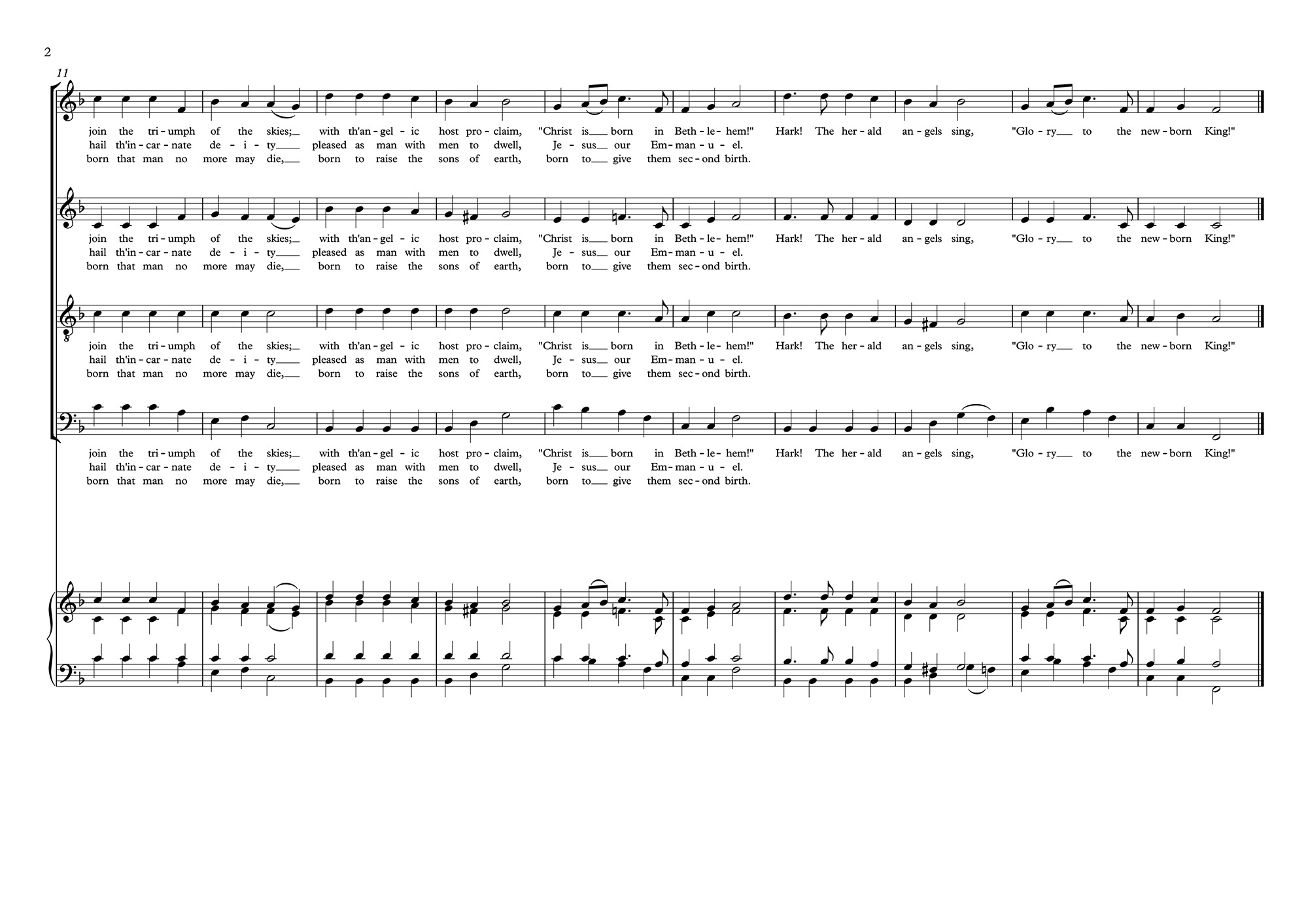
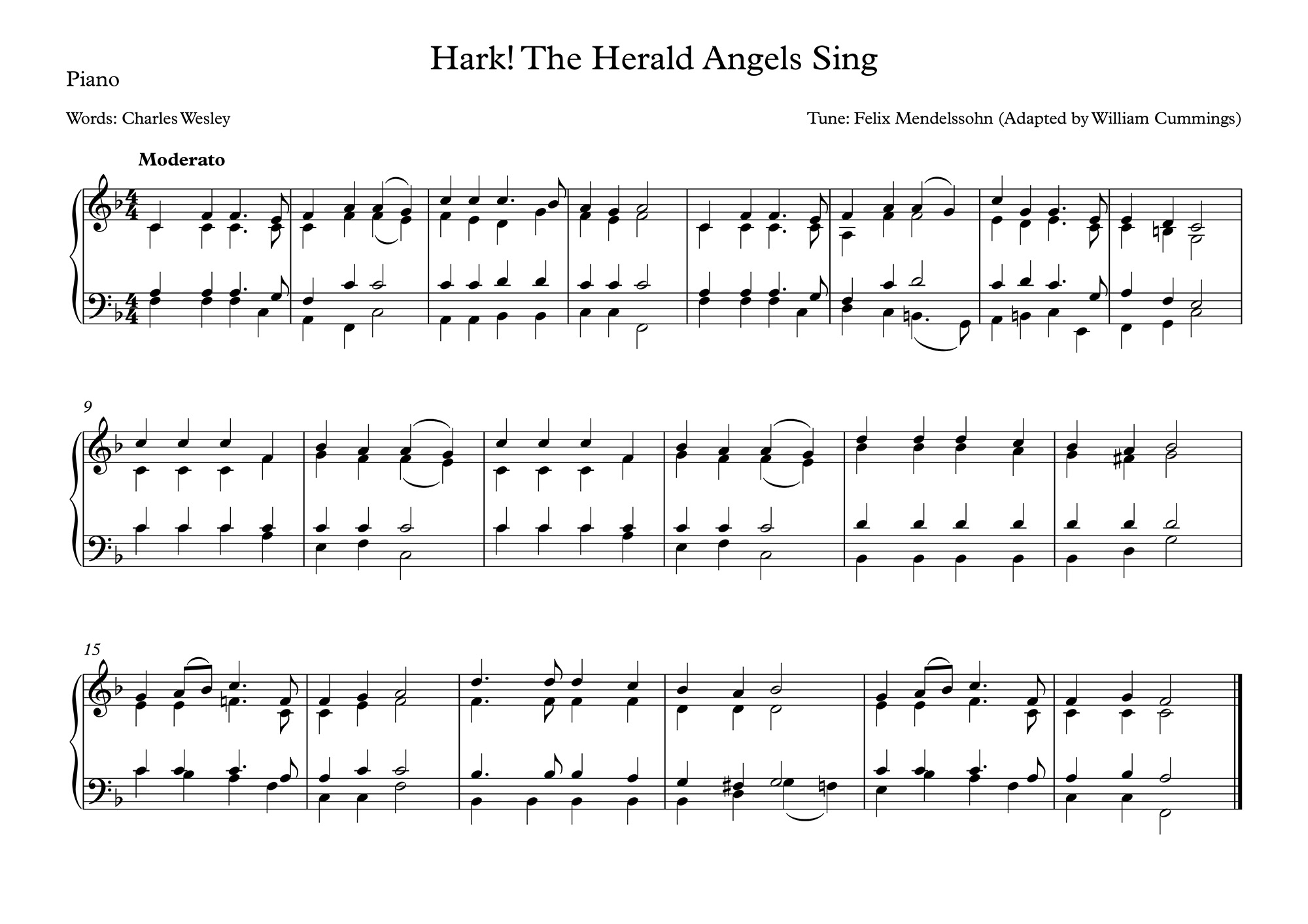
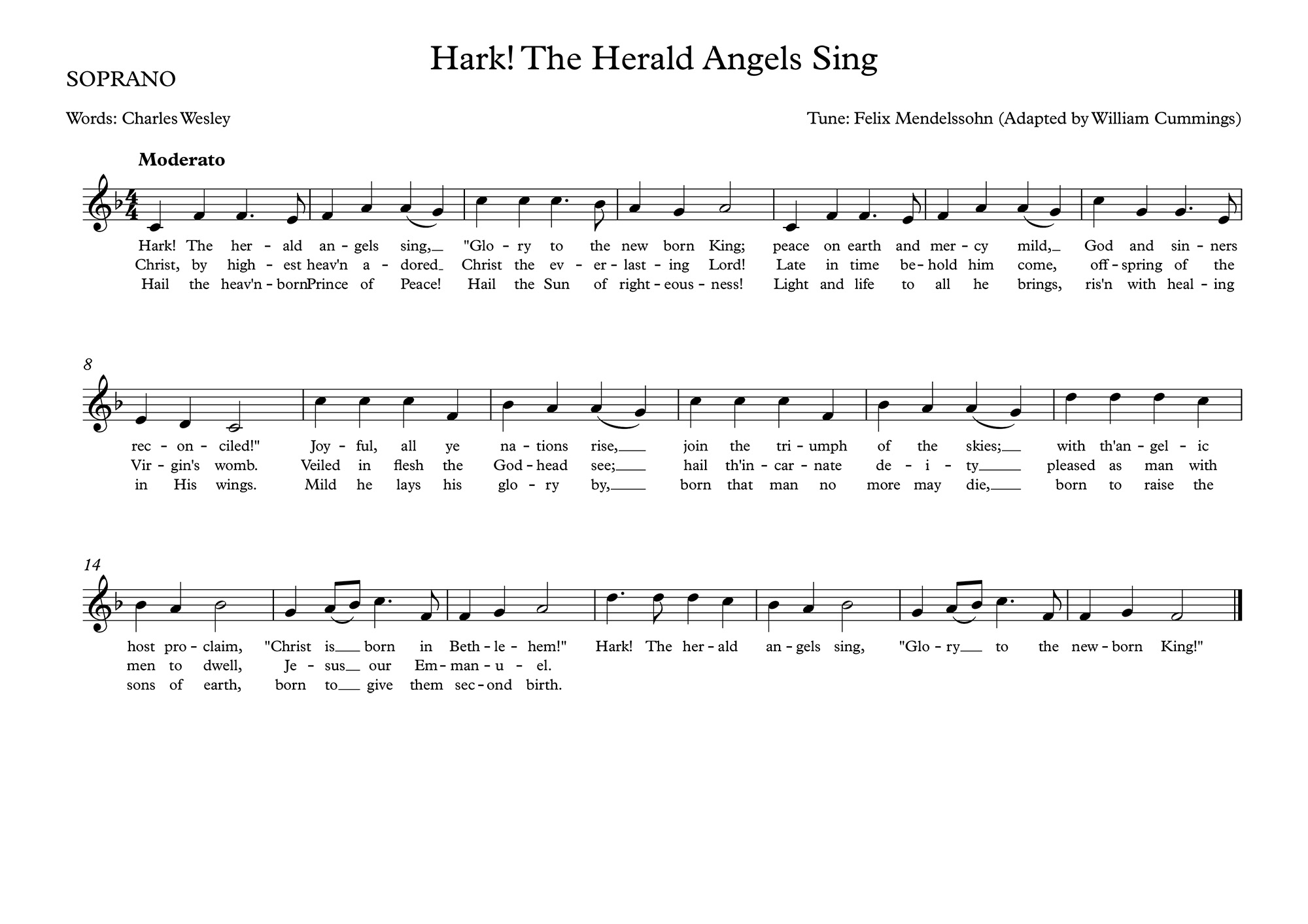
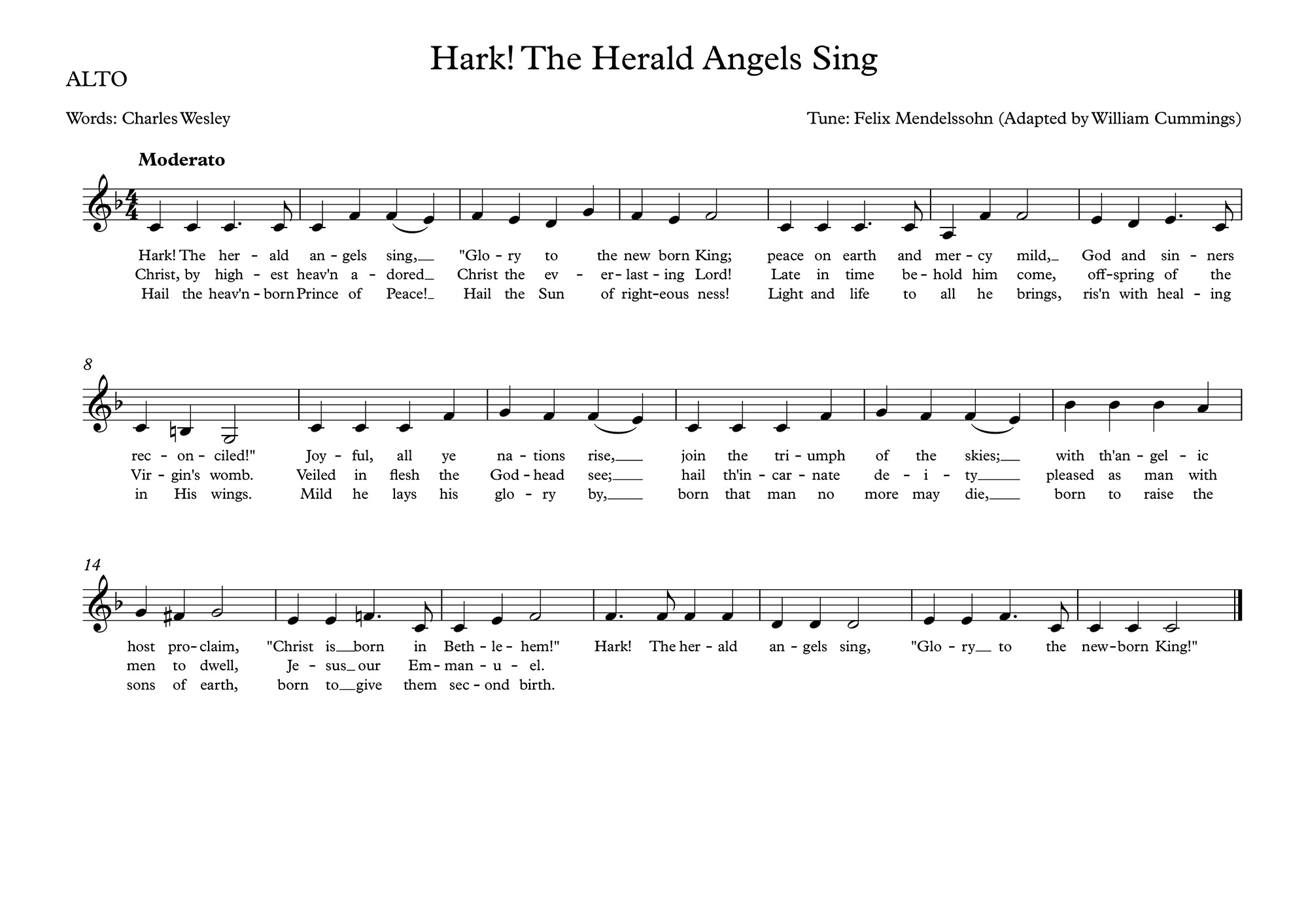
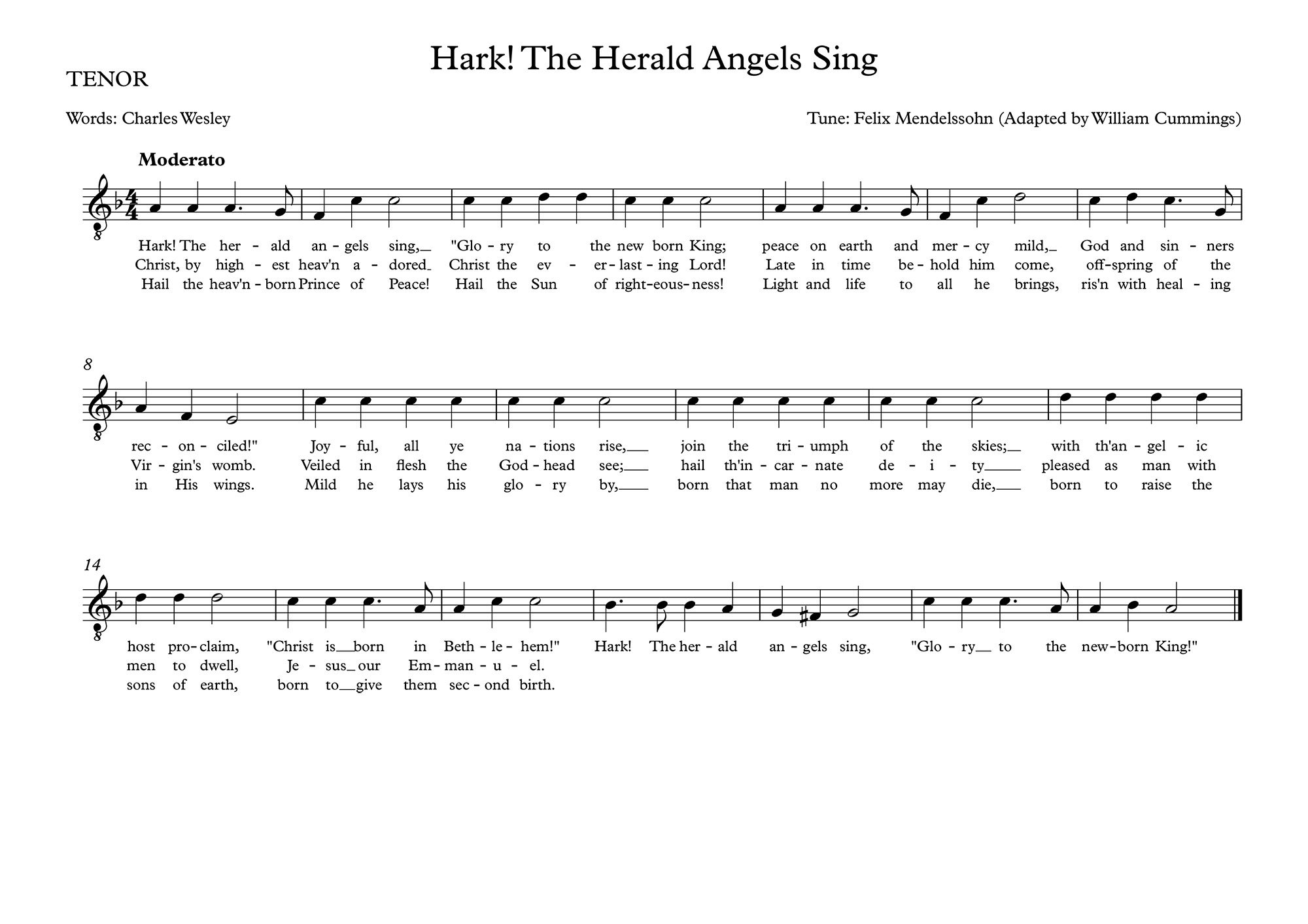
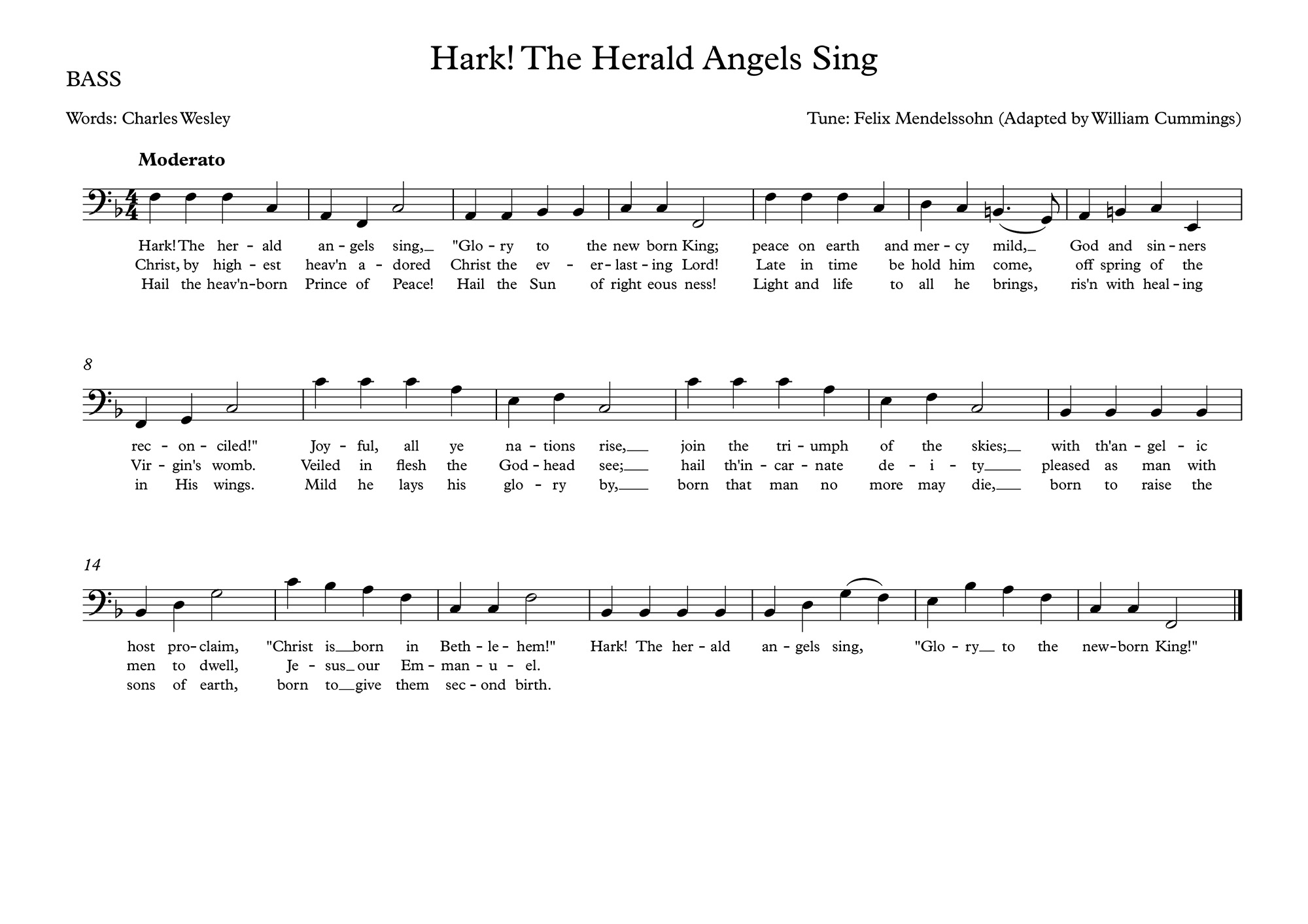 The Words Hark the herald angels sing, Glory to the newborn King! Peace on earth and mercy mild God and sinners reconciled Joyful, all ye nations rise, join the triumph of the skies; With thangelic host proclaim: Christ is born in Bethlehem! Hark! The herald angels sing, Glory to the newborn King! Christ by highest heavn adored, Christ the everlasting Lord! Late in time behold Him come, offspring of a Virgins womb. Veiled in flesh the Godhead see; hail the incarnate Deity Pleased as man with man to dwell, Jesus, our Emmanuel Hark! The herald angels sing, Glory to the newborn King! Hail the heavn-born Prince of Peace! Hail the Son of Righteousness! Light and life to all He brings, risn with healing in His wings. Mild He lays His glory by, born that man no more may die, Born to raise the sons of earth, born to give them second birth.
The Words Hark the herald angels sing, Glory to the newborn King! Peace on earth and mercy mild God and sinners reconciled Joyful, all ye nations rise, join the triumph of the skies; With thangelic host proclaim: Christ is born in Bethlehem! Hark! The herald angels sing, Glory to the newborn King! Christ by highest heavn adored, Christ the everlasting Lord! Late in time behold Him come, offspring of a Virgins womb. Veiled in flesh the Godhead see; hail the incarnate Deity Pleased as man with man to dwell, Jesus, our Emmanuel Hark! The herald angels sing, Glory to the newborn King! Hail the heavn-born Prince of Peace! Hail the Son of Righteousness! Light and life to all He brings, risn with healing in His wings. Mild He lays His glory by, born that man no more may die, Born to raise the sons of earth, born to give them second birth.
Hark! The herald angels sing Glory to the newborn King!
Away in a Manger Away in a manger is often voted as one of the most popular carols, whether it is in the version best known to those in Britain or those in America. The words are often falsely attributed to Martin Luther - scholars believe it was credited to him as a marketing gimmick for his 400 th anniversary! The version used here is by William Kirkpatrick and tends more often to be performed by British choirs. It was in fact first written for a musical by the name of Around the World with Christmas , and was adapted from an earlier melody composed by Jonathan Spilman.
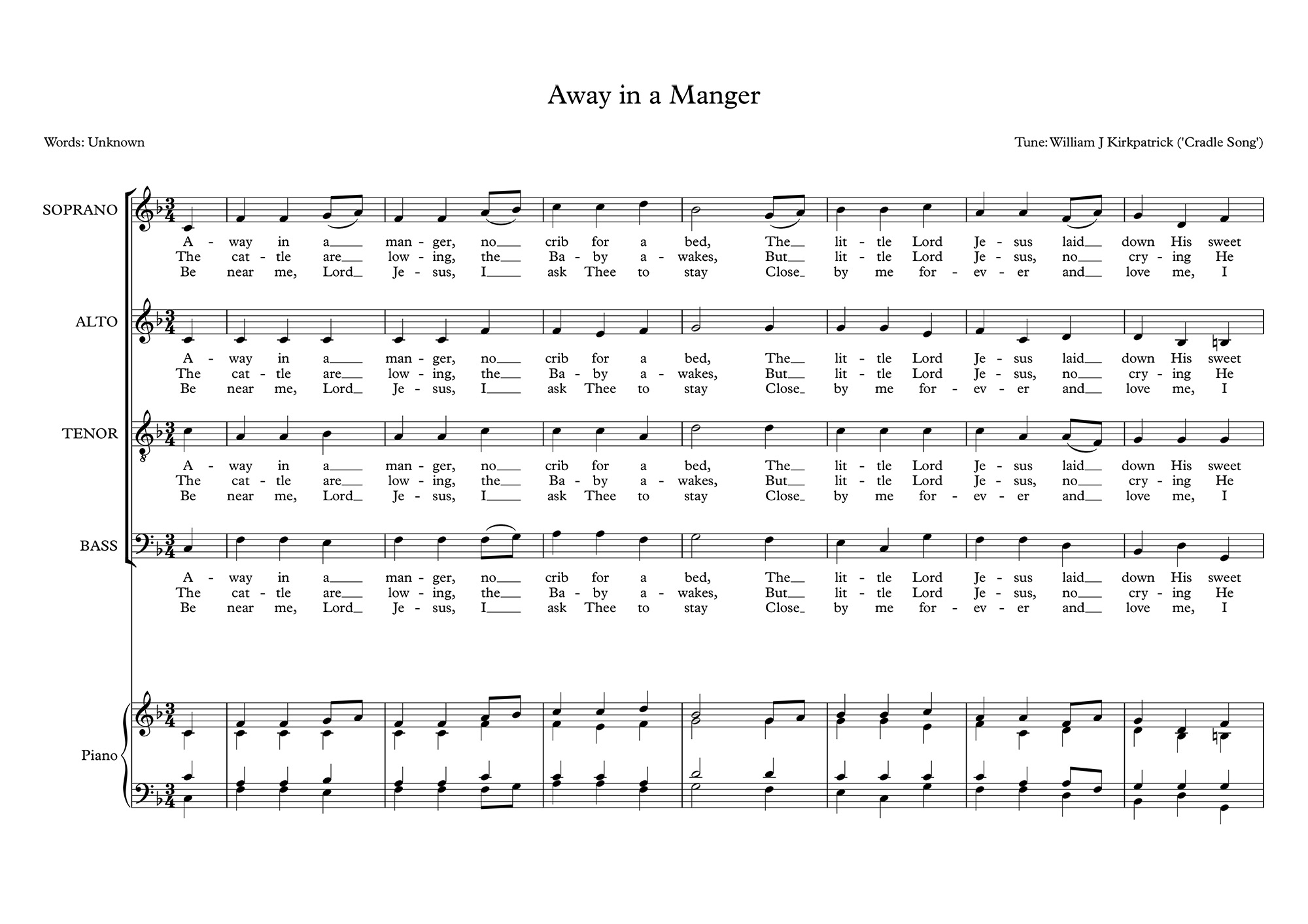
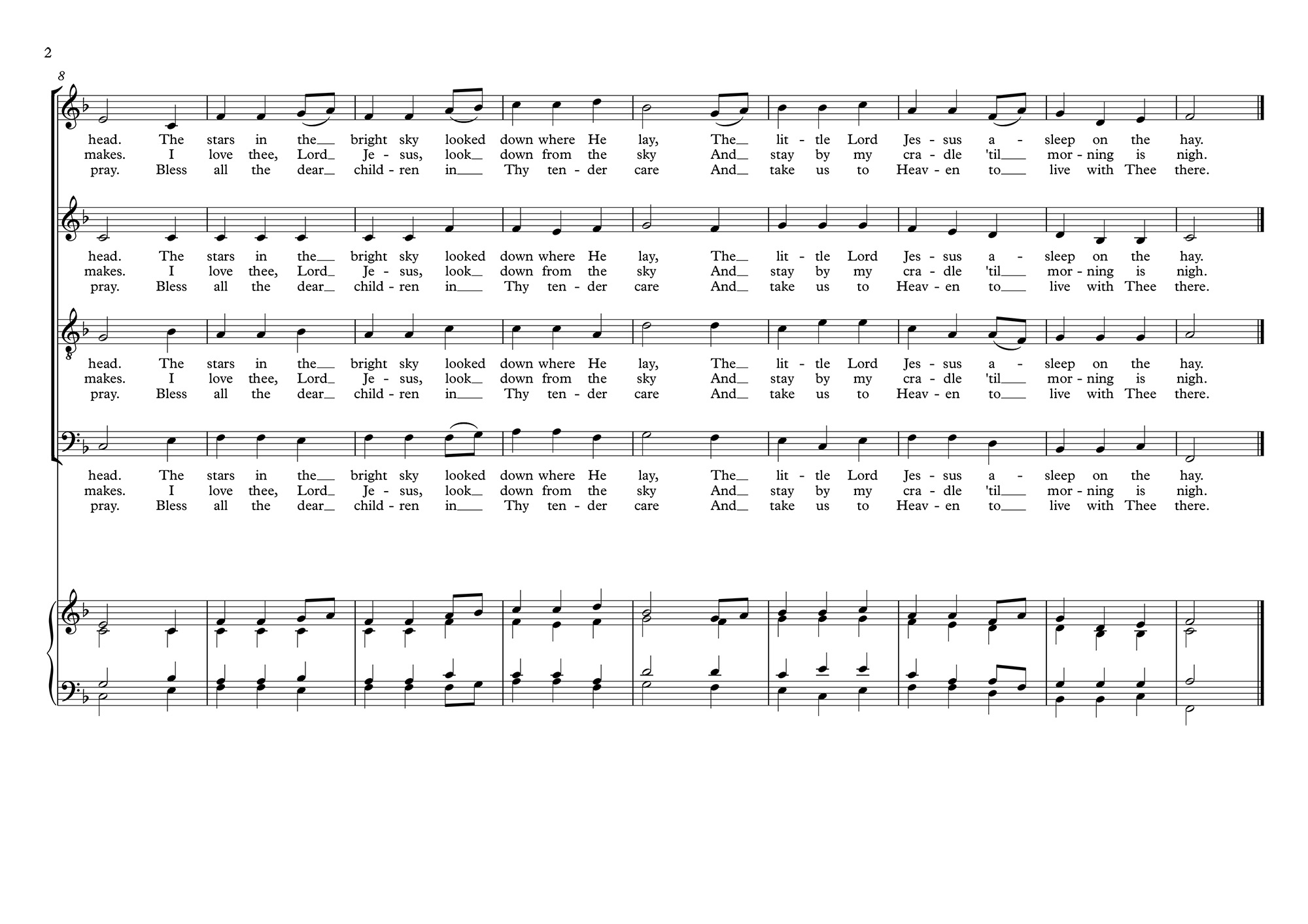
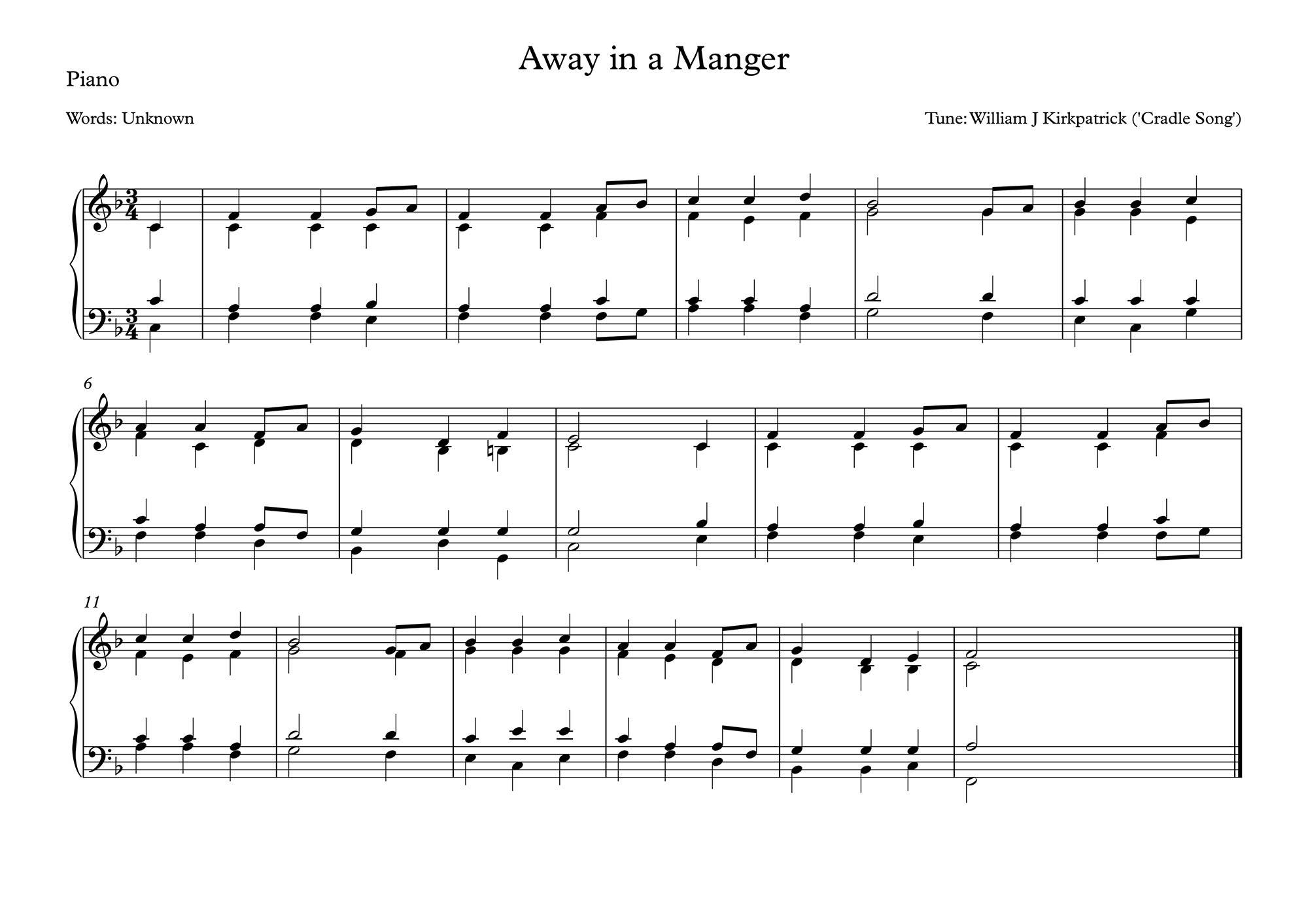
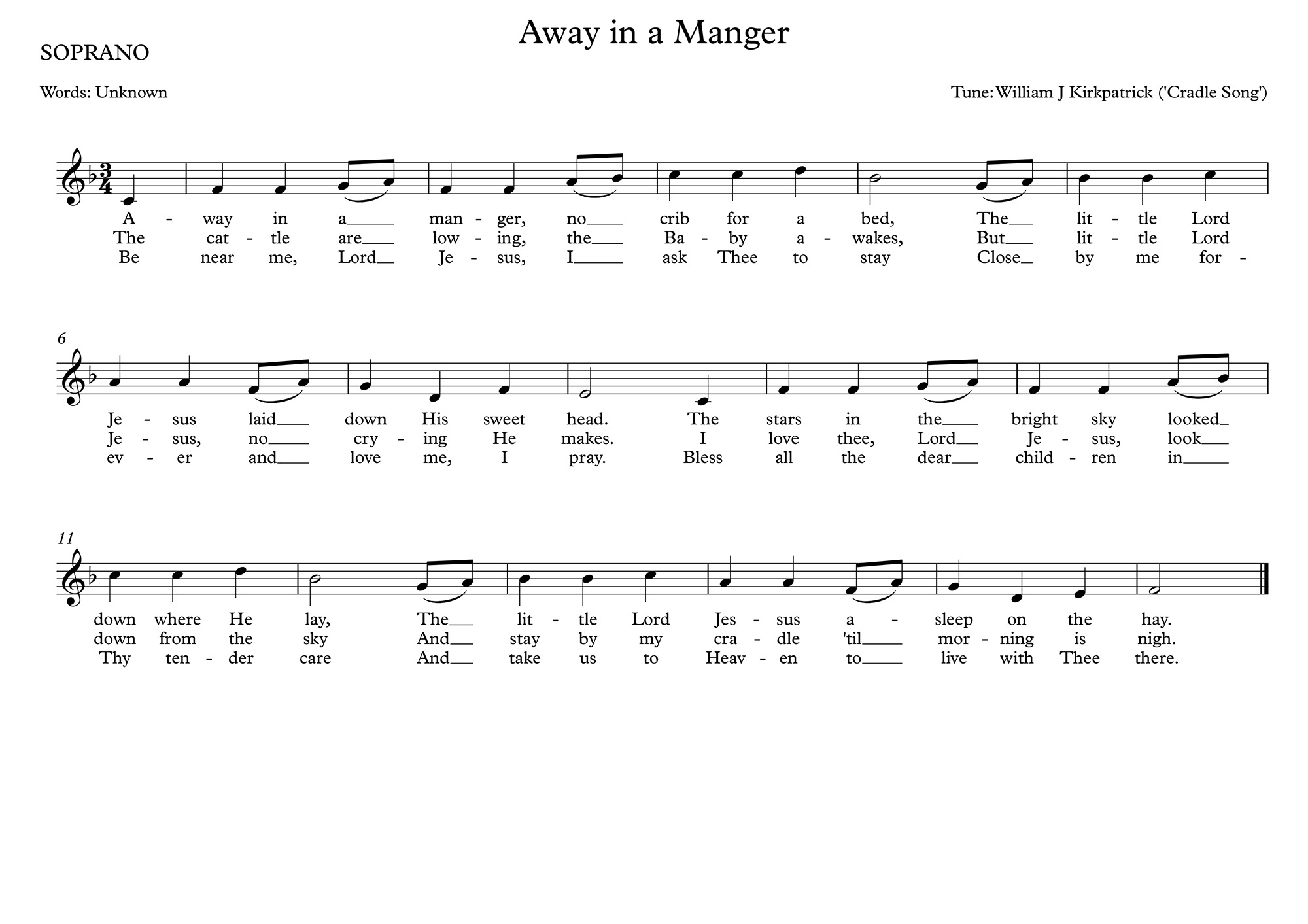


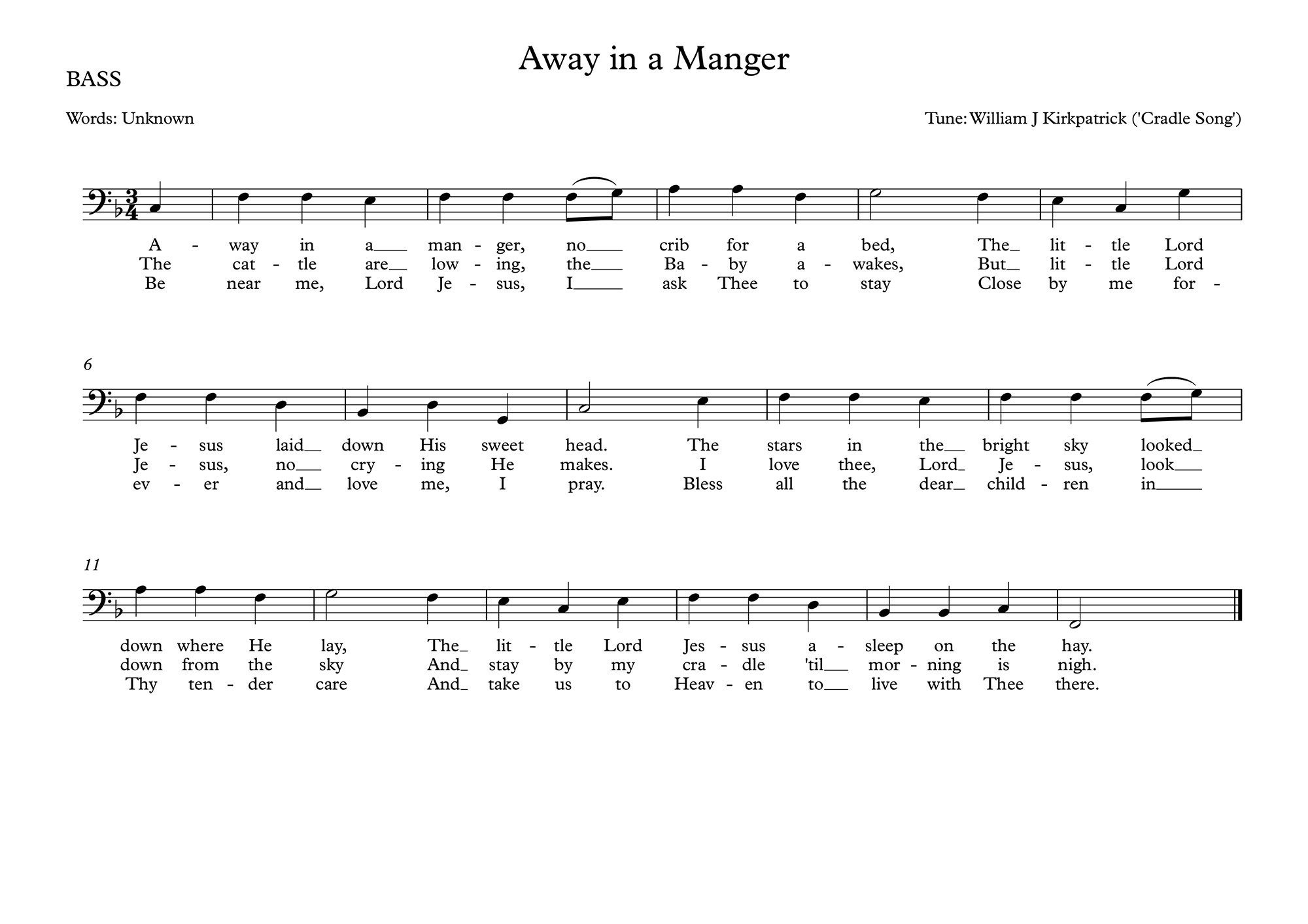
The Words Away in a manger, no crib for a bed, the little Lord Jesus laid down His sweet head. The stars in the bright sky looked down where He lay, the little Lord Jesus asleep on the hay. The cattle are lowing, the Baby awakes, but little Lord Jesus no crying he makes.
I love thee, Lord Jesus, Look down from the sky, and stay by my cradle til morning is nigh. Be near me, Lord Jesus; I ask thee to stay close by me for ever, and love me I pray. Bless all the dear children in Thy tender care, and take us to heaven to live with Thee there.
O Come, All Ye Faithful Generally this carol is attributed to John Francis Wade - although some manuscripts have been found which actually cast doubt on this; it has even been suggested that the original words may have been written by King John IV of Portugal! The Latin lyrics which are still sung in some services today begin Adeste Fidelis, whereas the translation used here is by a Catholic priest called Frederick Oakeley. These English words were written by Oakeley in the mid-19 th century, and the carol in its current form is one of the best-known in the English-speaking world.
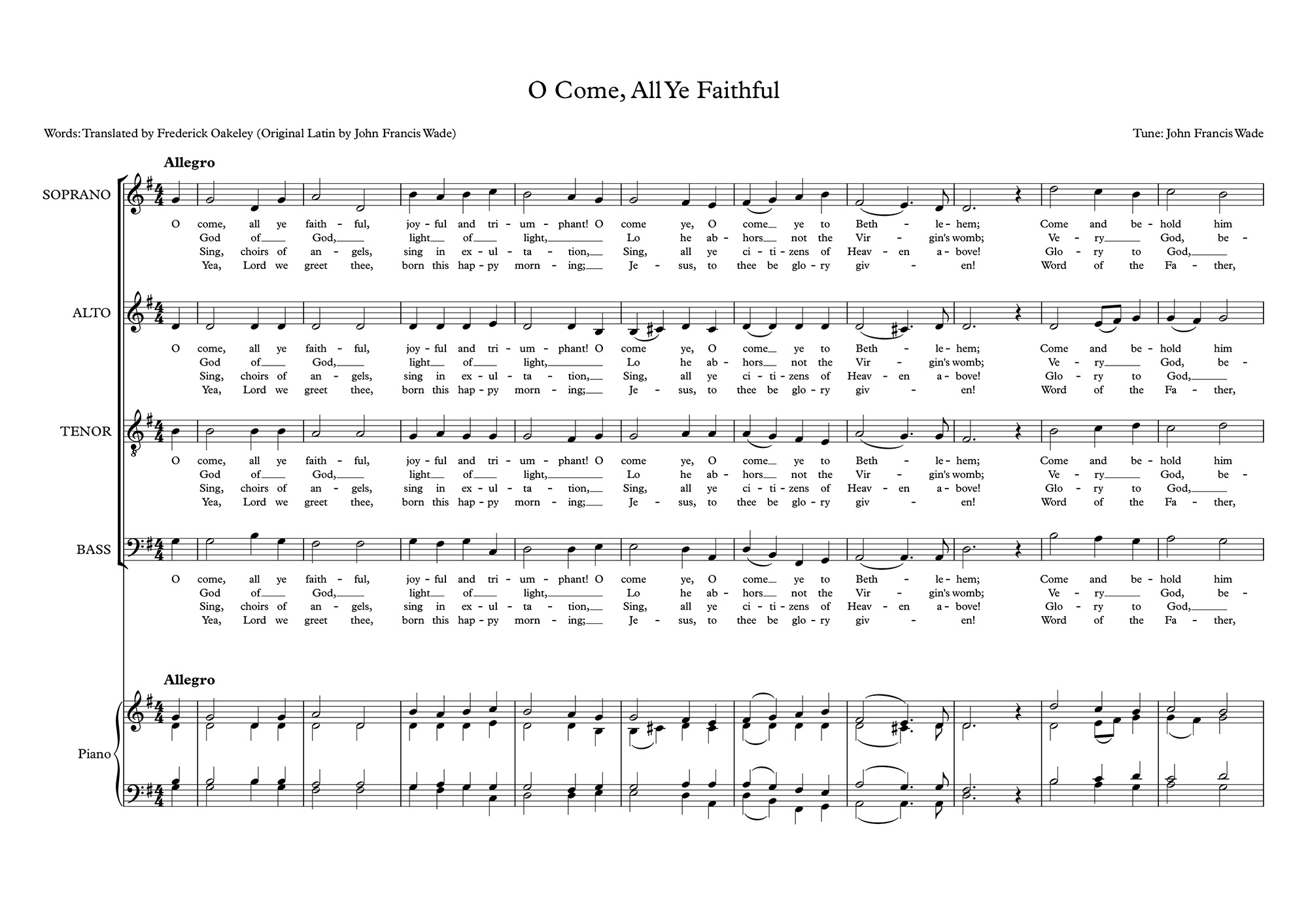
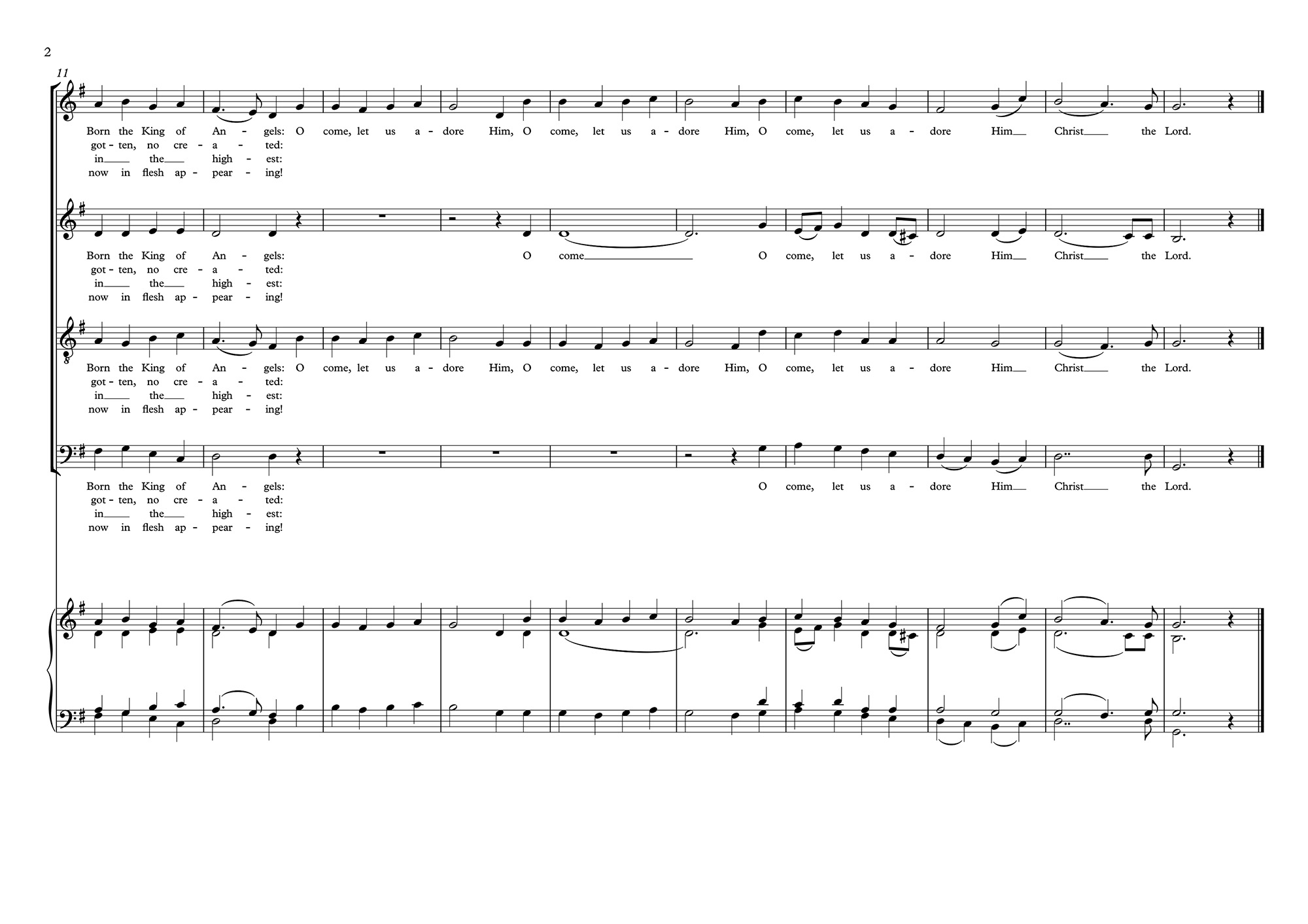
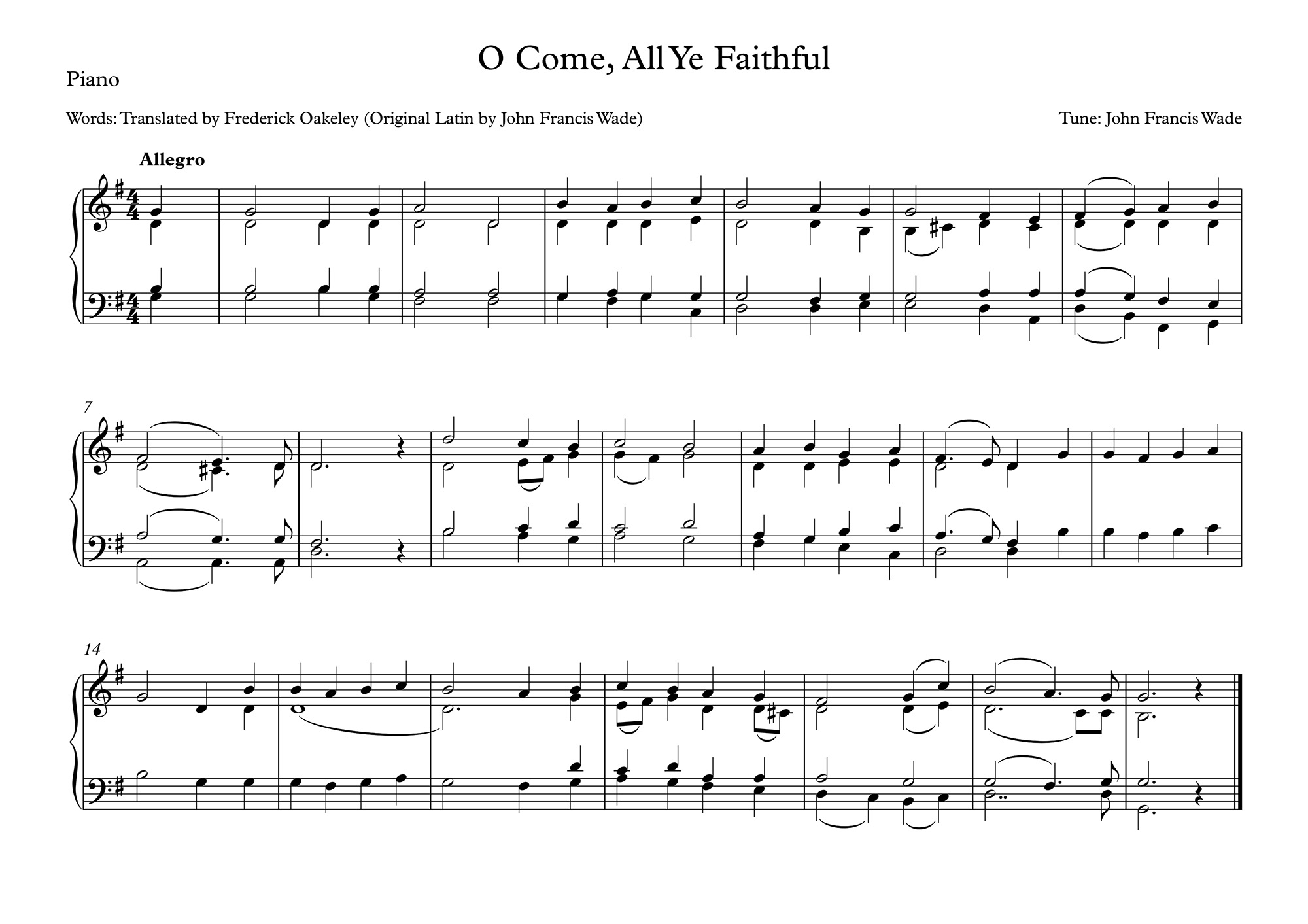
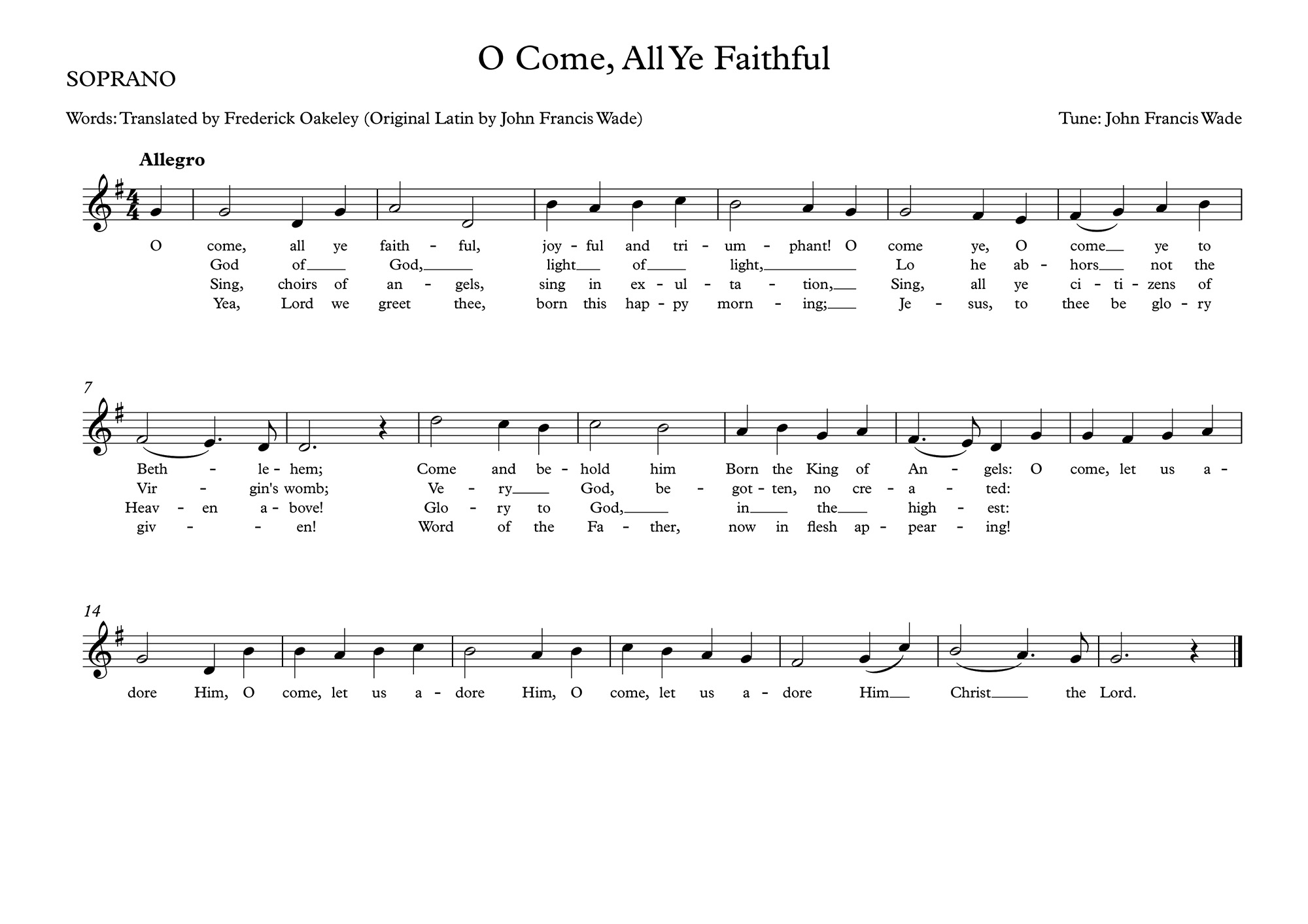
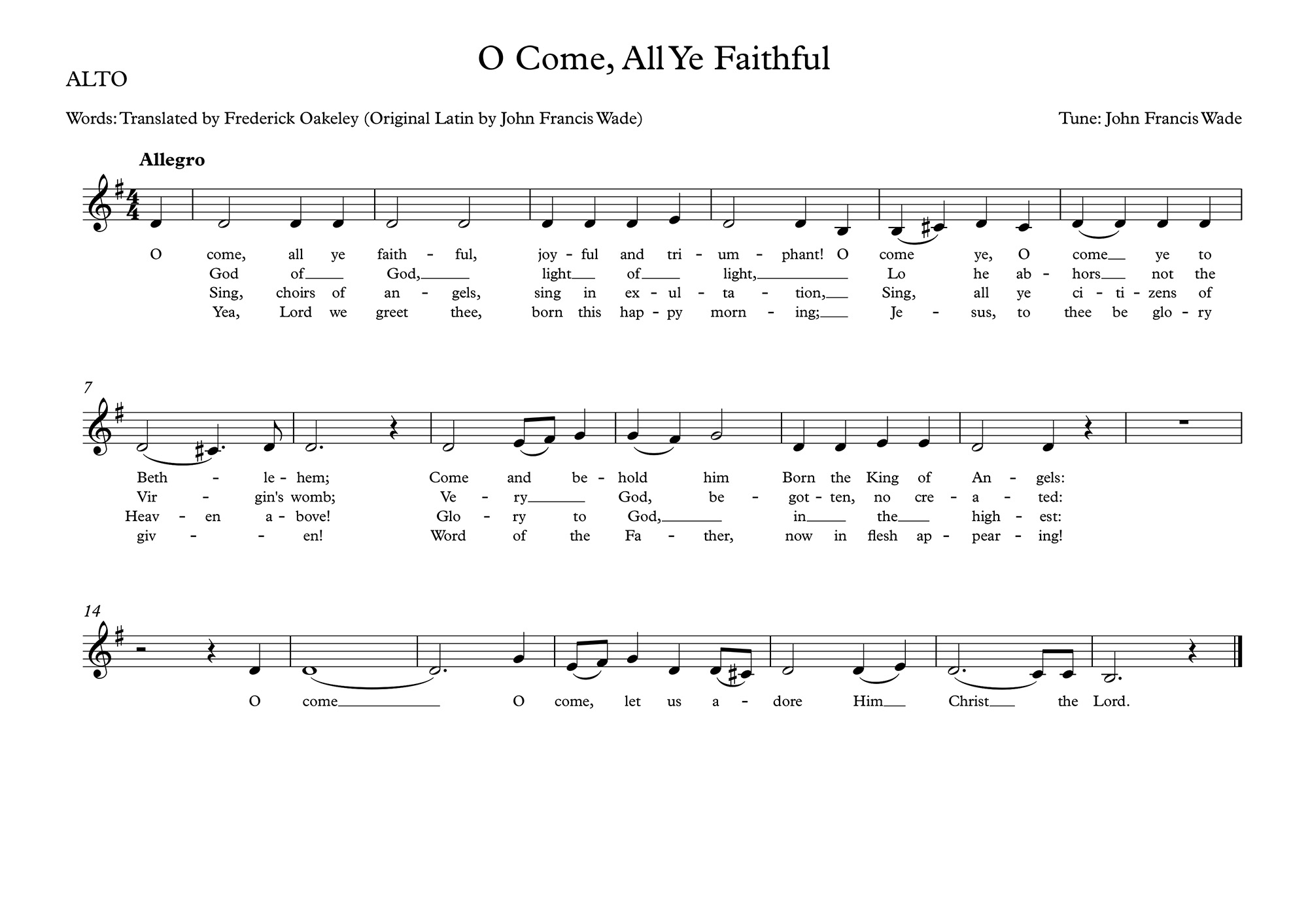
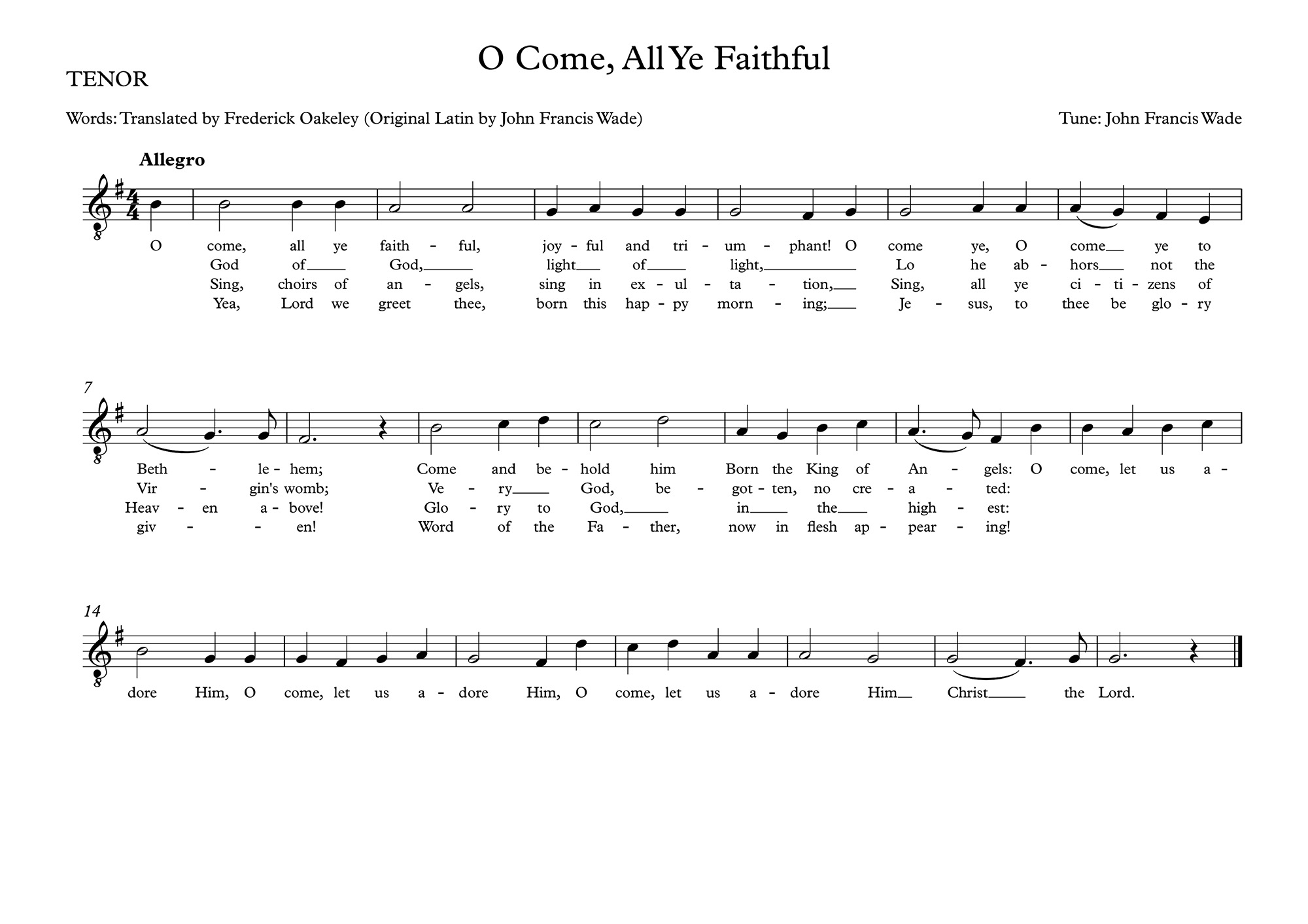
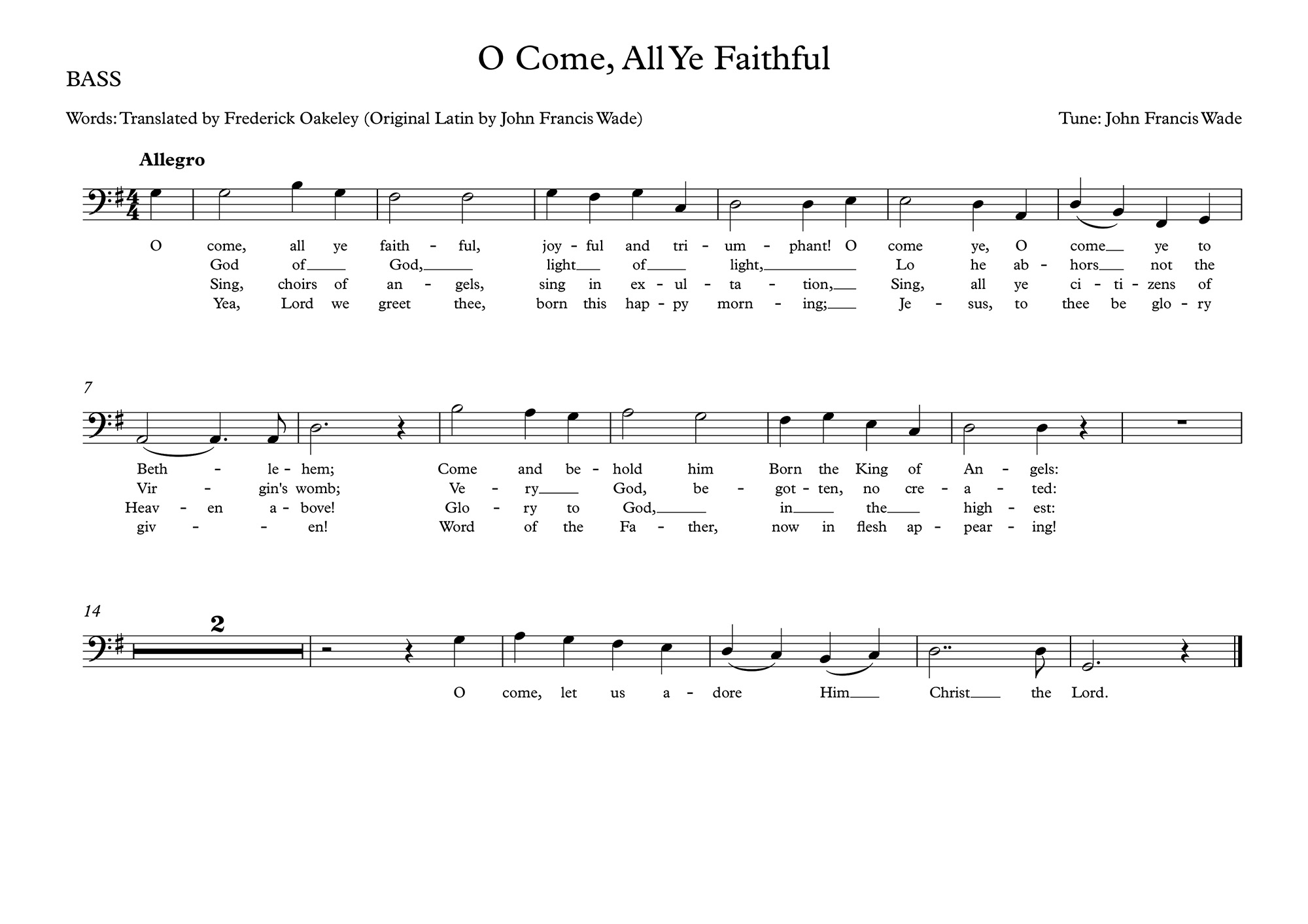
The Words O come, all ye faithful, joyful and triumphant! O come ye, O come ye to Bethlehem; Come and behold him Born the King of Angels: O come, let us adore Him, O come, let us adore Him, O come, let us adore Him, Christ the Lord.
God of God, light of light, Lo, he abhors not the Virgins womb; Very God, begotten, not created: O come, let us adore Him, O come, let us adore Him, O come, let us adore Him, Christ the Lord. Sing, choirs of angels, sing in exultation, Sing, all ye citizens of Heaven above! Glory to God In the highest: O come, let us adore Him, O come, let us adore Him, O come, let us adore Him, Christ the Lord. Yea, Lord, we greet thee, born this happy morning; Jesus, to thee be glory given! Word of the Father, now in flesh appearing! O come, let us adore Him, O come, let us adore Him, O come, let us adore Him, Christ the Lord.

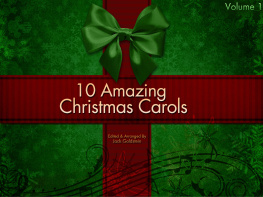
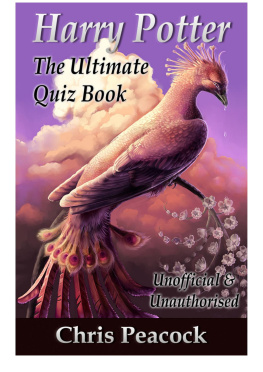
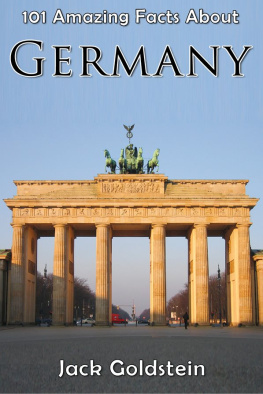
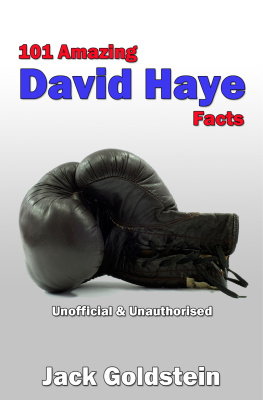
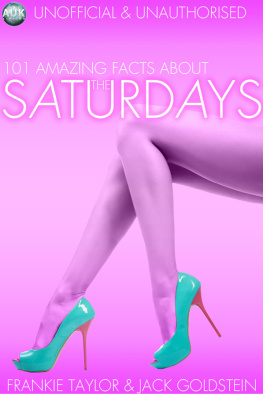

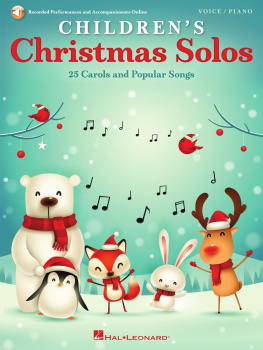
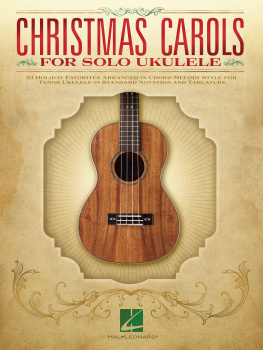
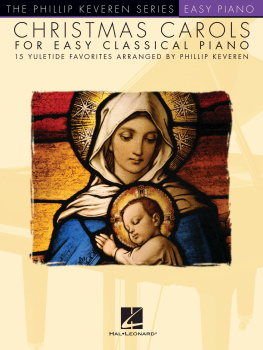
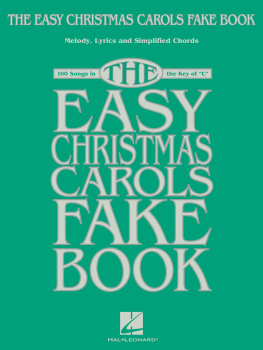
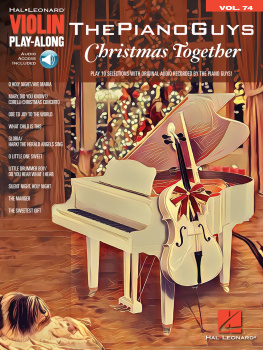

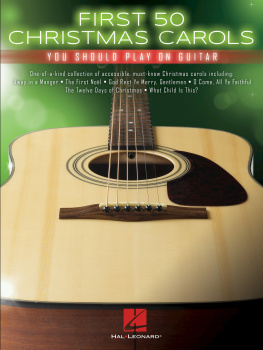

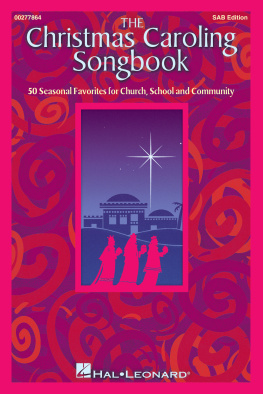
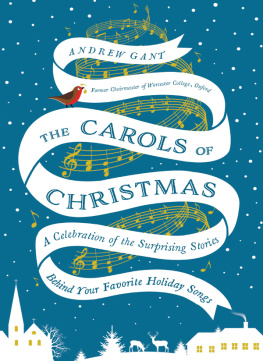
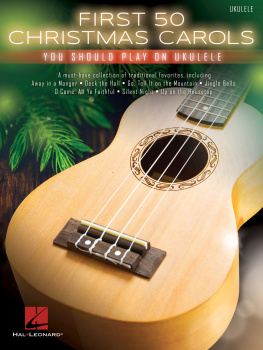
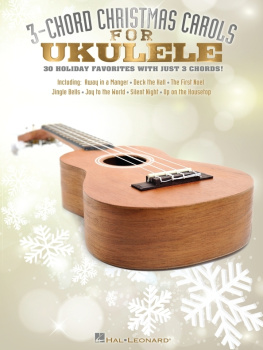






 The Words Hark the herald angels sing, Glory to the newborn King! Peace on earth and mercy mild God and sinners reconciled Joyful, all ye nations rise, join the triumph of the skies; With thangelic host proclaim: Christ is born in Bethlehem! Hark! The herald angels sing, Glory to the newborn King! Christ by highest heavn adored, Christ the everlasting Lord! Late in time behold Him come, offspring of a Virgins womb. Veiled in flesh the Godhead see; hail the incarnate Deity Pleased as man with man to dwell, Jesus, our Emmanuel Hark! The herald angels sing, Glory to the newborn King! Hail the heavn-born Prince of Peace! Hail the Son of Righteousness! Light and life to all He brings, risn with healing in His wings. Mild He lays His glory by, born that man no more may die, Born to raise the sons of earth, born to give them second birth.
The Words Hark the herald angels sing, Glory to the newborn King! Peace on earth and mercy mild God and sinners reconciled Joyful, all ye nations rise, join the triumph of the skies; With thangelic host proclaim: Christ is born in Bethlehem! Hark! The herald angels sing, Glory to the newborn King! Christ by highest heavn adored, Christ the everlasting Lord! Late in time behold Him come, offspring of a Virgins womb. Veiled in flesh the Godhead see; hail the incarnate Deity Pleased as man with man to dwell, Jesus, our Emmanuel Hark! The herald angels sing, Glory to the newborn King! Hail the heavn-born Prince of Peace! Hail the Son of Righteousness! Light and life to all He brings, risn with healing in His wings. Mild He lays His glory by, born that man no more may die, Born to raise the sons of earth, born to give them second birth.





 The Words Away in a manger, no crib for a bed, the little Lord Jesus laid down His sweet head. The stars in the bright sky looked down where He lay, the little Lord Jesus asleep on the hay. The cattle are lowing, the Baby awakes, but little Lord Jesus no crying he makes.
The Words Away in a manger, no crib for a bed, the little Lord Jesus laid down His sweet head. The stars in the bright sky looked down where He lay, the little Lord Jesus asleep on the hay. The cattle are lowing, the Baby awakes, but little Lord Jesus no crying he makes. 





 The Words O come, all ye faithful, joyful and triumphant! O come ye, O come ye to Bethlehem; Come and behold him Born the King of Angels: O come, let us adore Him, O come, let us adore Him, O come, let us adore Him, Christ the Lord.
The Words O come, all ye faithful, joyful and triumphant! O come ye, O come ye to Bethlehem; Come and behold him Born the King of Angels: O come, let us adore Him, O come, let us adore Him, O come, let us adore Him, Christ the Lord.